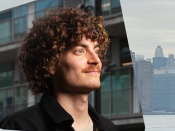Por Stephen Johnston (History of Science Museum, University of Oxford).
Although the astrolabe is now commonly presented as an instrument to tell time, in historical sources the determination of the ascendant is as important, if not a more fundamental operation. The ascendant is only the first step in the astrolabe’s astrological role across a variety of languages and cultures. In this paper I examine some of the specific adaptations designed to enhance the astrological capacity of the instrument, focusing on late medieval and early-modern Europe, but drawing on wider evidence as well. I will particularly show how the astrolabe was simplified for astrological use, and that astrology therefore had the same instrumental trajectory as the arts of navigation and surveying in the Renaissance. Its alignment with these exoteric disciplines underlines the extent to which, rather than being bracketed as occult, astrology was treated simply as another of the mathematical arts whose practice and material culture were being dramatically redeveloped during the 16th century.
About the speaker: Stephen Johnston became Senior Research Curator at the History of Science Museum in 2022. From 2018-2022 he was Head of Research, Teaching and Collections at the History of Science Museum, having first joined the Museum as Assistant Keeper in 1995. He has curated exhibitions on a broad range of themes within the history of science, from Al-Mizan: Sciences and Arts in the Islamic World (2010) to Geek is Good (2014). Previously he was a curator and special projects officer at the Science Museum London. He studied History and Philosophy of Science at both undergraduate and graduate level at the University of Cambridge, completing his doctorate on Elizabethan practical mathematics under the supervision of Jim Bennett.


















